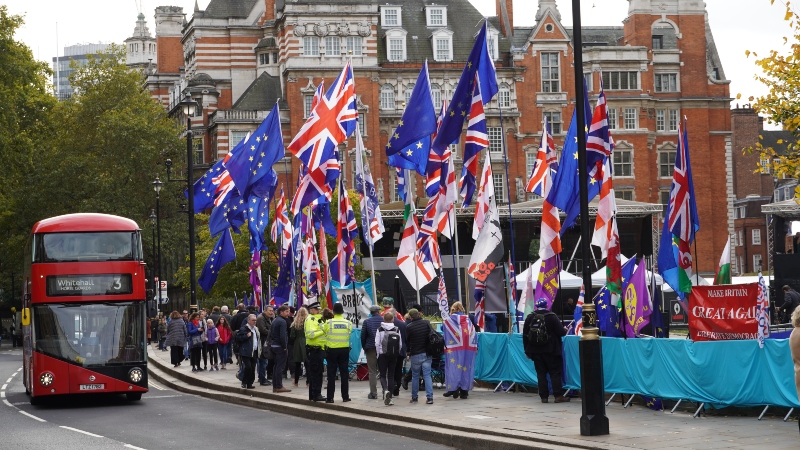
 For parents who cannot reach a ‘family-based’ child maintenance arrangement, the statutory service is the other option. The government has introduced a fee waiver for survivors of domestic abuse who apply to use this service. But although the reform is welcomed, the way it works still leaves many trapped between a dangerous dilemma: get financial support at the risk of abuse, or avoid abuse and risk financial hardship. Sumi Rabindrakumar and Janet Allbeson explain what the flaws are and how they can be solved.
For parents who cannot reach a ‘family-based’ child maintenance arrangement, the statutory service is the other option. The government has introduced a fee waiver for survivors of domestic abuse who apply to use this service. But although the reform is welcomed, the way it works still leaves many trapped between a dangerous dilemma: get financial support at the risk of abuse, or avoid abuse and risk financial hardship. Sumi Rabindrakumar and Janet Allbeson explain what the flaws are and how they can be solved.
For survivors of domestic abuse, using the statutory child maintenance system is not a matter of choice – it is a matter of safety. In the week marking International Women’s Day, we raise some worrying findings on how survivors are faring since the introduction of major child maintenance reforms. As we wrote recently, the findings of research commissioned by the Department for Work and Pensions (DWP) – slipped out without fanfare while most people wound down for Christmas parties and eggnog – supports Gingerbread’s concerns that new charges in the Child Maintenance Service (CMS) are preventing parents and children from accessing maintenance.
 The findings also suggest that survivors of domestic abuse, who are perhaps most in need of a government service to help ensure maintenance is paid, are some of those worst served by the barriers created by charges. Domestic violence can be a barrier to setting up a maintenance arrangement at all. Researchers found that around one in four receiving parents cited domestic violence as a reason for not setting up an arrangement after their CSA case had closed.
The findings also suggest that survivors of domestic abuse, who are perhaps most in need of a government service to help ensure maintenance is paid, are some of those worst served by the barriers created by charges. Domestic violence can be a barrier to setting up a maintenance arrangement at all. Researchers found that around one in four receiving parents cited domestic violence as a reason for not setting up an arrangement after their CSA case had closed.
In light of this, the government’s application fee waiver for survivors of domestic abuse is hugely welcome. Yet our early tracking of the impact of reforms suggests that some parents are falling through the gaps. The government refuses to publicise the fee waiver, placing an emotional burden on parents to voluntarily disclose their experience of domestic abuse in order to receive their exemption. Those who do not, miss out.
Similarly, the government reassured parents and campaigners that processes would be in place to avoid the risk of abuse as a result of having to request payment and share personal details to set up Direct Pay arrangements. However, parents have discovered that even CMS staff – and banks – can be unaware of provisions such as ‘non-geographic’ bank accounts (where a receiving parent’s location would not be identifiable from a bank account sort code).
It’s perhaps unsurprising, then, that researchers found that while over one in five receiving parents surveyed said domestic violence had made it difficult to set up a Direct Pay arrangement, just 2 per cent reported using a generic or national bank account. They also found that many parents, reluctant to share details, did not know the CMS could help with providing this information.
A single parent with a history of domestic abuse (the last incident involved hospitalisation) was told she had to have a Direct Pay arrangement and was given the option of using a ‘non-geographic’ bank account or using a pre-paid card. However, both these options would reveal her new name, adopted to make her harder to trace. She felt at risk and was now considering dropping her case.
Gingerbread helpline
Once set up, ensuring payment can also be difficult when receiving parents fear domestic abuse, while the murky interaction between Direct Pay and Collect and Pay services doesn’t fill parents with confidence. The government argues that when Direct Pay isn’t working, parents can report the paying parent and come into the Collect and Pay service. In reality, some parents are wary of flagging non-payment for fear of rocking the boat or inflaming tensions with ex-partners, who face hefty collection charges if the CMS steps in.
The DWP research seems to bear this out: around one in ten of receiving parents with an ineffective Direct Pay arrangement said domestic violence played a part in not moving onto the Collect and Pay service. This suggests receiving parents are being exposed to financial abuse, with the child’s other parent making payments if and when they wish.
There are some obvious changes the government can make to help survivors of domestic abuse access the vital financial support they need. It can ensure the application fee exemption is properly publicised and that it is transparent. It can publicise and embed existing systems like non-geographic bank accounts and the CMS’s ability to help share details.
But improvements cannot be confined to process or information leaflets – particularly given the numbers involved. Leaving aside those put off from the CMS entirely, a worryingly large proportion of parents are stuck with ineffective Direct Pay arrangements – after a year, around a fifth of receiving parents whose arrangement broke down (and of those whose arrangement didn’t even get off the ground) said domestic violence was a factor.
More questions must be asked about the bigger picture – including how the reformed system treats and understands domestic violence. Without action, survivors of such violence are presented with a difficult choice – try to get financial support from their child’s other parent at the risk of emotional or physical abuse, or protect themselves and their families at the risk of financial hardship.
For real improvement, the government should ease the levers pushing parents out of the maintenance system. The collection service should be more accessible for survivors of domestic abuse – collection charges should be scrapped and an option introduced to allow fast-tracking to Collect and Pay. More broadly, a culture change is needed to ensure a service that supports rather than deters families needing assistance. This should be underpinned by better training and understanding on domestic abuse and how it manifests.
The prime minister wants to transform how we think about domestic violence. To do so, her government must understand the reality of domestic abuse: the experience of which is not confined to one area of people’s lives, and must be recognised across services and departments. The 2017 Budget announcement of further funding suggests an appetite to do more, but it remains to be seen whether the DWP will follow suit.
______
 Sumi Rabindrakumar is Research Officer at the charity Gingerbread, the national charity for single parent families. Gingerbread’s research covers a range of policy areas relating to single parent life, including childcare, employment support, welfare reform and child maintenance. Sumi tweets alongside the Gingerbread policy team @GingerbreadPA.
Sumi Rabindrakumar is Research Officer at the charity Gingerbread, the national charity for single parent families. Gingerbread’s research covers a range of policy areas relating to single parent life, including childcare, employment support, welfare reform and child maintenance. Sumi tweets alongside the Gingerbread policy team @GingerbreadPA.
 Janet Allbeson is Senior Policy Adviser at Gingerbread. Formerly she was Committee Specialist to the Work and Pensions Select Committee and a lawyer specialising in social welfare law.
Janet Allbeson is Senior Policy Adviser at Gingerbread. Formerly she was Committee Specialist to the Work and Pensions Select Committee and a lawyer specialising in social welfare law.









Is there a way to follow a post without leaving a comment? I haven’t found one, so I comment on far too many posts. Sorry to use yours in this way but, if it saves other contributors from receiving so many comments from me, it will be appreciated.
This doesn’t mention the fact that the CMS are known to share dv victims details including new addresses phone numbers with the perpetrator as I have sadly found out for myself. But even more worrying was when I shared my story on social media how many other survivors had suffered the same fate due to under trained CMS staff:(
Rather gender biased, not all domestic abuse is male on female, and if cases of domestic abuse mean the waiving of fees clearly it would be in everyone involved to claim that happened even when it never did.
Barry, you begin by objecting to the male on female abuse assumption, then get your panties in a bunch because you believe people will lie to save £20 administration fee. Check your privilege mate.